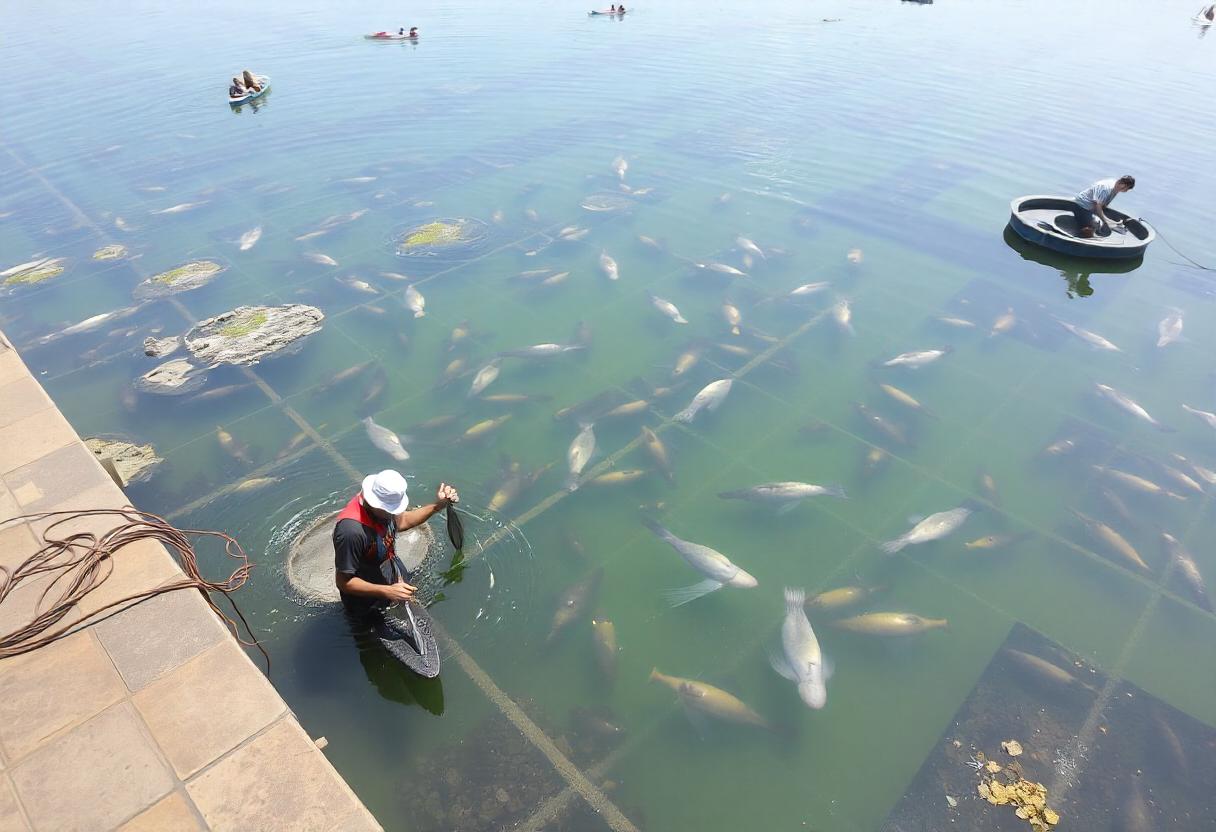
Introduction
Aquaculture, also known as fish farming or aqua farming, is the cultivation of aquatic organisms such as fish, crustaceans, mollusks, and aquatic plants under controlled conditions. It has evolved into a vital component of global food production and is increasingly recognized for its role in sustainable development. This article delves into the intricacies of aquaculture, covering its history, practices, benefits, challenges, and future prospects.
History and Development
Aquaculture has ancient roots, with evidence of fish farming dating back to ancient Egypt, China, and Rome. The Chinese are particularly noted for their early development of carp culture around 2500 B.C. Modern aquaculture began to take shape in the 20th century, driven by the need to meet the growing demand for seafood and alleviate pressures on wild fish stocks.
Types of Aquaculture
- Mariculture: This involves the cultivation of marine organisms in their natural habitats, typically in coastal areas. Species such as oysters, clams, and seaweed are commonly farmed through mariculture.
- Freshwater Aquaculture: This type focuses on cultivating species in freshwater environments such as rivers, lakes, and ponds. Fish like tilapia, trout, and catfish are popular in freshwater aquaculture.
- Integrated Multi-Trophic Aquaculture (IMTA): IMTA combines the cultivation of various species at different trophic levels in a single system. For example, finfish, shellfish, and seaweeds are grown together, with each species benefiting from the waste produced by others.
- Recirculating Aquaculture Systems (RAS): RAS involves creating a closed-loop system where water is continually recycled and filtered. This method minimizes water usage and environmental impact while allowing precise control over environmental conditions.
- Aquaponics: This innovative system combines aquaculture with hydroponics (soil-less plant cultivation). Fish waste provides nutrients for plants, while the plants help filter and purify the water for the fish.
Benefits of Aquaculture
- Food Security: Aquaculture contributes significantly to global food security by providing a reliable source of protein. It is particularly important in regions where wild fish stocks are depleted.
- Economic Opportunities: The aquaculture industry creates jobs and supports local economies. It offers opportunities for farmers, researchers, and processors in both developed and developing countries.
- Sustainable Seafood: Compared to wild fisheries, aquaculture can be a more sustainable way to produce seafood. It reduces the pressure on wild fish populations and can be managed to minimize environmental impact.
- Conservation and Restoration: Aquaculture can play a role in conservation efforts, such as breeding and reintroducing endangered species and restoring depleted habitats through activities like reef and mangrove restoration.
Challenges and Concerns
- Environmental Impact: Despite its potential for sustainability, aquaculture can pose environmental risks if not managed properly. Issues such as water pollution, habitat destruction, and the spread of diseases can arise.
- Resource Use: The production of fish feed often relies on wild-caught fish, which can put additional pressure on marine ecosystems. Efforts are ongoing to develop more sustainable feed options, such as plant-based or insect-based feeds.
- Disease and Parasites: High-density farming conditions can lead to the rapid spread of diseases and parasites among cultured species. Effective management practices and biosecurity measures are essential to mitigate these risks.
- Social Implications: Aquaculture can have social impacts on local communities, including conflicts over water use and changes in traditional fishing practices. Ensuring equitable benefits and involving local stakeholders in decision-making processes are crucial for addressing these concerns.
Future Prospects
The future of aquaculture holds promise for further advancements and innovations. Key areas of development include:
- Technology Integration: Advances in technology, such as automated feeding systems, real-time monitoring, and genetic improvements, are enhancing the efficiency and sustainability of aquaculture operations.
- Sustainable Practices: The industry is increasingly focusing on sustainable practices, including the use of alternative feeds, improved waste management, and the development of low-impact farming methods.
- Global Expansion: As demand for seafood continues to rise, aquaculture is expected to expand globally. This includes the development of new farming techniques and the cultivation of previously underutilized species.
- Consumer Awareness: Growing consumer awareness and demand for responsibly sourced seafood are driving the industry towards greater transparency and certification schemes, such as those provided by the Marine Stewardship Council (MSC) and the Global Aquaculture Alliance (GAA).
Aquaculture is a dynamic and evolving field with significant potential to contribute to global food security, economic development, and environmental sustainability. While it faces challenges, ongoing research, technological advancements, and sustainable practices are paving the way for a more resilient and responsible aquaculture industry. As we move forward, continued innovation and collaboration will be essential to realizing the full potential of aquaculture and ensuring its role in a sustainable future.